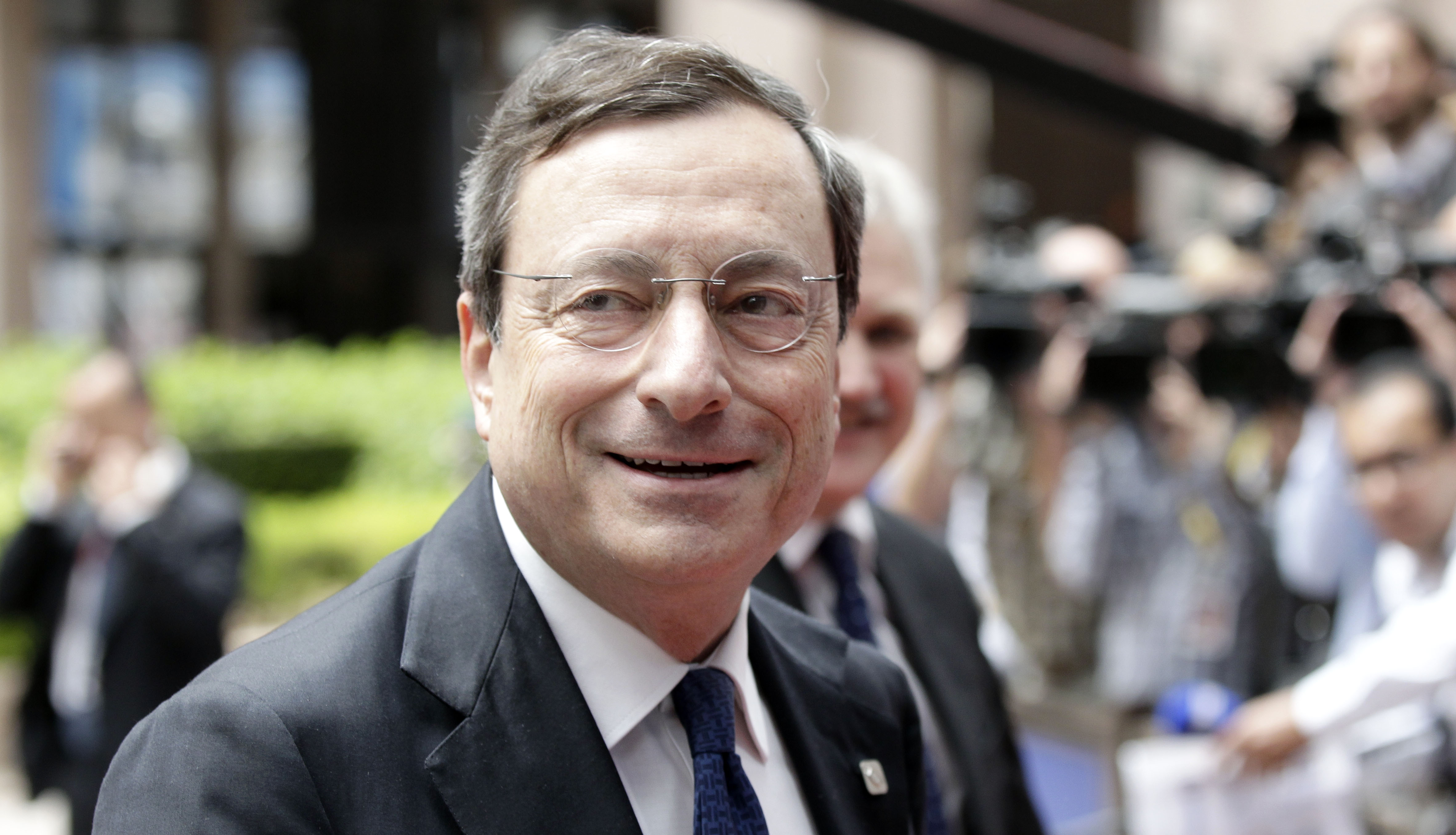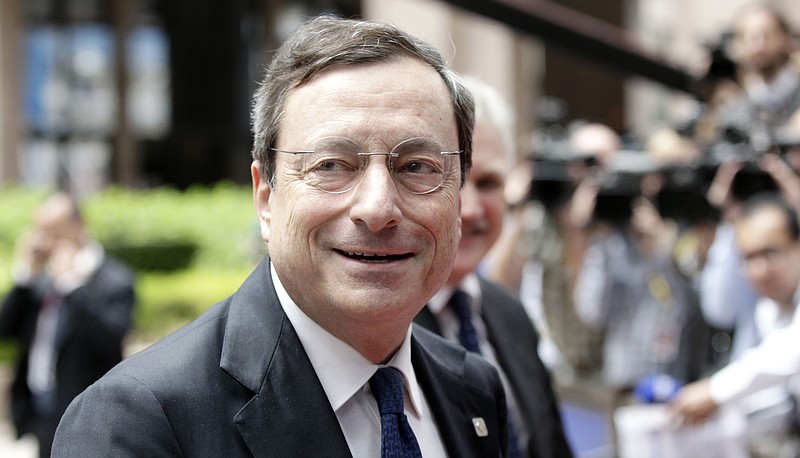 European Central Bank President Mario Draghi arrives for an EU Summit in Brussels on Thursday, June 28, 2012. European leaders gathering Thursday in Brussels are set to sign off on a series of measures to boost economic growth but expectations of a breakthrough on the pooling of debt have fallen by the wayside. (AP Photo/Michel Euler)
Summary
European Central Bank President Mario Draghi arrives for an EU Summit in Brussels on Thursday, June 28, 2012. European leaders gathering Thursday in Brussels are set to sign off on a series of measures to boost economic growth but expectations of a breakthrough on the pooling of debt have fallen by the wayside. (AP Photo/Michel Euler)
SummaryDAVID McHUGH
FRANKFURT, Germany (AP) - The European Central Bank is expected to cut interest rates on Thursday to help the continent's fading economy and ailing banks.
Many economists think the ECB will cut its benchmark refinancing rate by a quarter point to 0.75 percent, a record low. However, the ECB is likely to hold off from more aggressive measures, such as new cheap loans to banks.
That's because its president, Mario Draghi, has said there is only so much the central bank can do and that it is up to Europe's politicians to restore confidence in the 17-country eurozone.
European leaders agreed at a summit in Brussels last week to create a banking regulator under the ECB's aegis with the power to rescue banks directly. The goal is to spare single governments from being overwhelmed by the costs of rescuing banks and to make it easier for them to access Europe-wide bailout funds.
The measures exceeded financial markets' hopes and triggered a drop in borrowing rates for financially troubled Spain and Italy.
The European economy remains weak, however. The eurozone economy stagnated in the first quarter, meaning it avoided a technical recession, defined as two consecutive quarters of economic contraction. However, it is widely expected to shrink in the second and third quarters.
At the last ECB rate-setting meeting on June 7, Draghi conceded that there were risks to the bank's forecast for a modest recovery this year. He also said a rate cut had been discussed at that meeting.
The ECB's refinancing rate is what banks pay when they borrow from the ECB and therefore influences the cost of loans to the wider economy.
A lower refinancing rate would reduce what banks are paying on €1 trillion ($1.26 trillion) in 3-year, emergency loans that the ECB doled out on Dec. 21 and Feb. 29. Banks have been using that money to buy government bonds or other investments bearing higher interest, so a cheaper rate would increase their profits.
But that is about as far as the ECB is likely to go. Analysts think it will not issue more emergency loans to banks in part to keep a fire lit under governments to keep moving with reforms of their economies and of the institutional foundations of the euro.
Other central banks are also expected to step in to support economic growth, which has been slowing across the globe. Analysts predict the Bank of England will reopen its program of buying government bonds from banks. The goal is to increase the amount of money flowing through the economy, improving banks' ability to lend. The Bank of England's policy committee will make a decision on Thursday.
